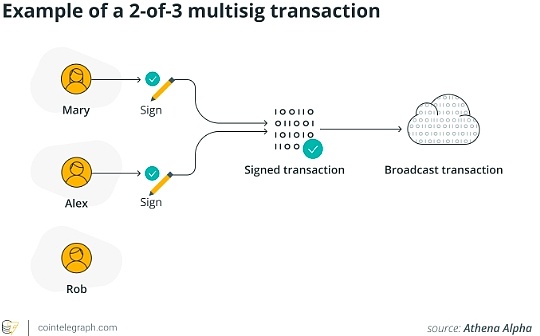Copycat ETFs are applying in large numbers, is the era of ETF 2.0 coming?

Reprinted from chaincatcher
03/06/2025·1MAuthor: Ashley, BlockBeats
After Trump announced the strategic reserves of cryptocurrencies with high profile, although the market price performance was unsatisfactory, it did not prevent traditional financial institutions from moving. After the SEC confirmed several traditional American giants to apply for ETFs for LTC, DOGE, SOL and XRP in February this year, favorable policies and loose SEC supervision have caused frequent progress news to counterfeit ETFs this week.
Latest altcoins for ETF application
The order of filing documents for applying for ETFs in the United States is: first the issuer submits Form S-1/S-3, then the exchange submits Form 19b-4, and then enters the public comment period. Then the SEC reviews and feedbacks, and finally approves them. The entire process takes about 6-8 months, depending on the progress of the SEC's review. The following are the altcoins and market data for the recent 30-day applications, sorted by application time.
ADA (Cardano)
On February 25, the U.S. Securities and Exchange Commission (SEC) has confirmed the acceptance of the listing application for spot Cardano (ADA) ETF submitted by NYSE Arca on behalf of Grayscale. The application was submitted on February 10 and will be custodianed by Coinbase Custody Trust Company and BNY Mellon is responsible for asset services and administration.
On March 2, Trump posted a message on social media to "shout orders" cryptocurrency strategic reserves, including ADA, and ADA rose by more than 70% on the same day.

DOT (Polkadot)
On February 25, Nasdaq submitted 19b-4 application documents for Grayscale Polkadot Trust.

HBAR (Hedera)
On February 24, Nasdaq submitted 19b-4 application documents for the HBAR ETF of Canadian investment company Canary Capital; on March 4, Nasdaq submitted 19b-4 application documents for the Grayscale Hedera ETF.
Hedera is often seen as a cryptocurrency dark horse. What Hedera is most anticipated is that the spot HBAR ETF may be launched, and Valour Funds has submitted an application for physical pledge products to the European Euronext exchange. Meanwhile, Canary Capital submitted an application for a spot HBAR ETF in the United States, further increasing market expectations, and investors closely monitor regulatory trends in the post-election environment.

AXL (Axelar)
On March 6, Canary submitted an S-1 application document for its AXL ETF.
Additionally, former Coinbase legal director Brian Brooks joined Axelar’s new institutional advisory board, a project focused on regulatory coordination and institutional adoption.
BlockBeats previously reported that Canary Capital launched the AXL (Axelar) trust fund Canary AXL Trust, which will include native tokens for the Axelar network, and is the first investment trust to provide investment in a common blockchain interoperability protocol.
The trust will provide institutional investors with investment opportunities in blockchain interconnection technology, connecting Web3 ecosystems such as XRP Ledger, Hedera, Stellar, TON, Sui, Solana and Bitcoin.

APT (Aptos)
On March 6, Bitwise formally submitted an S-1 application to the U.S. Securities and Exchange Commission to register for the possible launch of Aptos ETF, taking the first step to launching Aptos ETFs in the U.S. market.
Aptos, together with major asset managers, seeks to launch a U.S.-listed ETF, made Aptos one of the few crypto protocols in the world to reach this milestone.
Prior to this, Bitwise had launched Aptos Staking ETP on the Swiss Stock Exchange in November 2024, pledging Aptos tokens.

How is the performance now after the Ethereum ETF passed?
Ethereum ETF officially landed in the US capital market on July 23 last year, and the Ethereum price was around US$3,200 that day. Market data shows that the net inflow of Ethereum ETF since it was launched for about half a year, which is equivalent to Wall Street purchasing nearly 1% of Ethereum, while Ethereum has fallen to around $2,300.

On the one hand, this is because Grayscale continues to sell Ethereum ETFs and becomes the largest seller in the market, which hinders the rise of Ethereum; on the other hand, Ethereum will be more severely affected by the selling of giant whales, and Ethereum is still digesting the potential selling pressure of giant whales.
But the good news is that Trump-related entity World Finance Liberty is constantly increasing its holdings in Ethereum. The net inflow of ETFs and the continuous buying of relevant Trump institutions show the attitude of long-term investors towards Ethereum in a market environment with increasingly open policies.

And so on, if the altcoin ETF mentioned above is approved in 2025, although ETFs in this category will become the inflow window for traditional funds, it does not mean that these tokens will show a sharp upward trend.
Encrypted ETF 2.0 under Trump
Looking at the development history of crypto ETFs, it is not difficult to see the major benefits for the entire market after Trump returns to the White House this year. Bloomberg analyst Eric Balchunas pointed out that before Trump won the election, the probability of approval of all assets except Litecoin remained below 5%. It is expected that as the application enters the approval process, the SEC's decision deadline is approaching, and the probability of approval of cryptocurrency ETFs will continue to rise.

What impact will it have on the crypto market?
Bloomberg analysts expect the SEC to make a decision on the proposed altcoin ETF in October this year. It can be foreseen that if the altcoin ETF is approved one after another, the positive news in the future is likely to continue to attract more conservative and institutional investors to participate, thereby changing the investor structure of the market. Crypto markets may experience increased liquidity, higher prices and changes in investor structure in this policy environment. Therefore, the passage of more ETF products will also bring more funds to the crypto market, enhance market liquidity, and thus reduce price fluctuations.
In addition, due to the existence of regulatory arbitrage, the launch of the ETF in the United States may directly lead to the imitation of other countries and regions in the world. This imitation may promote global popularity of cryptocurrencies to varying degrees, especially in areas with more relaxed regulation, where cryptocurrencies adoption will see more rapid growth. Global policy convergence can not only effectively reduce the compliance costs of cross-border transactions, but also further eliminate investors' concerns about legal risks, thereby promoting the participation of more institutions and individuals. This trend may accelerate the shift of cryptocurrencies from marginal assets to mainstream financial instruments, driving their rising position in the global economy.
As the Trump administration further supports the crypto industry, U.S. states gradually introduce "strategic Bitcoin reserves" legislation, coupled with Republican control of the Senate and House of Representatives, Congress may have the opportunity to pass cryptocurrency-related bills. Once legislation is passed, cryptocurrencies may be expected to become a new asset class that neither belongs to securities nor commodities, which will have epoch-making significance for the crypto market.
What other altcoins may apply for ETFs?
As the Trump administration continues to loosen crypto regulations, 2025 may usher in a peak in applications for altcoin ETFs. Some institutions have predicted that the surge in demand for cryptocurrency ETFs will make their total assets in North America surpass precious metals ETFs, becoming the third largest asset class in the fast-growing $15 trillion ETF industry after stocks and bonds.
Especially for highly relevant altcoins in the United States, they are more likely to be favored. For example, ONDO (Ondo Finance) is a representative of the RWA track that anchors real assets such as US bonds, and may be the first to obtain the ETF approval qualification for tokenized treasury bonds, and even become the core target for traditional institutions to allocate crypto assets. If the FIT21 Act is passed within the year, the principle of "Decentralized Agreement Exemption Securities Act" is established, and mainstream DeFi tokens such as UNI (Uniswap), MKR (MakerDAO), and AAVE (Aave) may accelerate their integration into the traditional financial system.

 panewslab
panewslab
 jinse
jinse